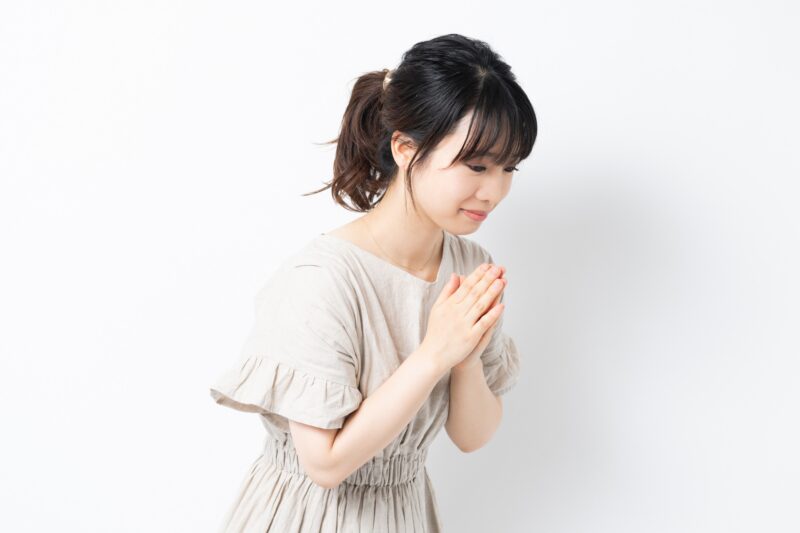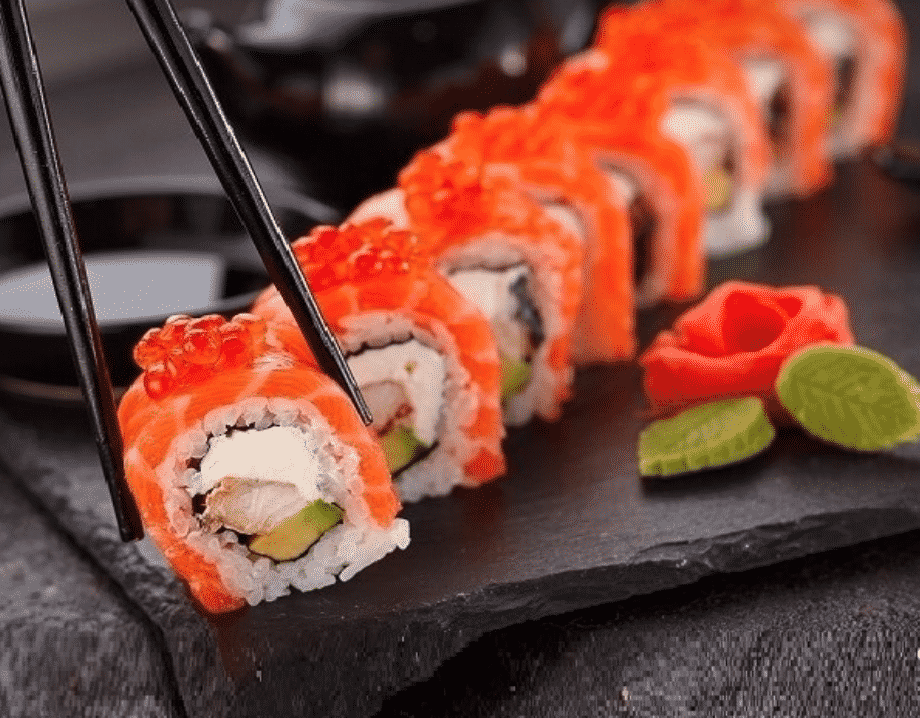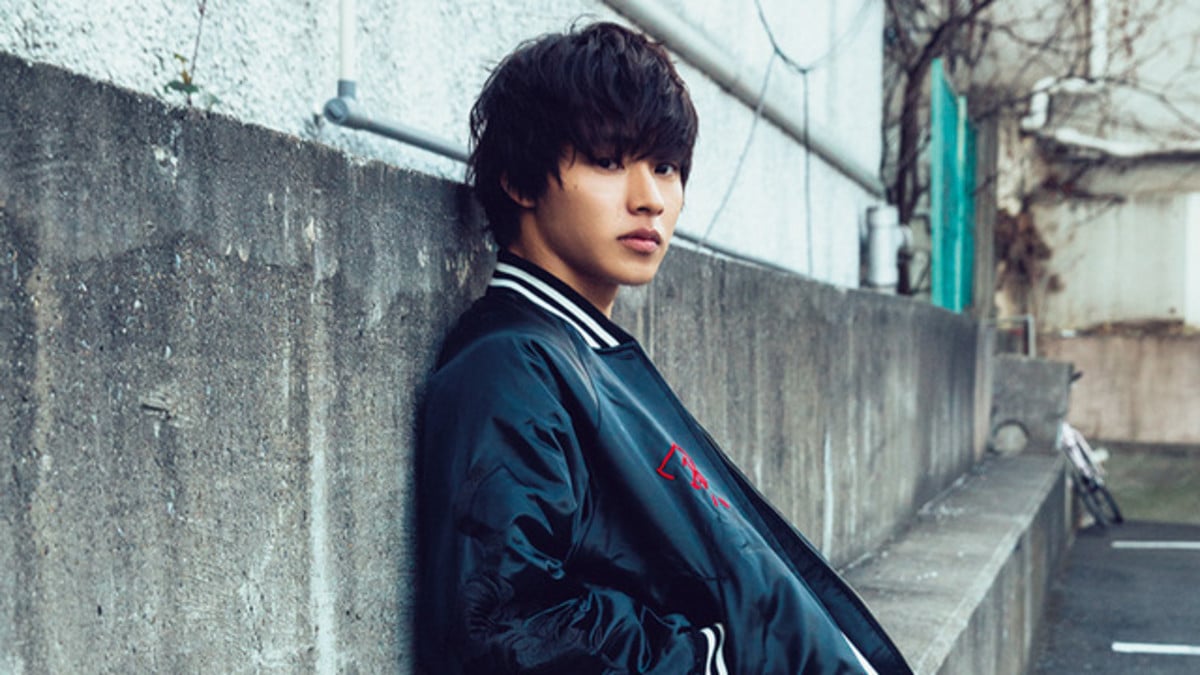

Even easy words and phrases in Japanese might seem like they’d take years to master.
But what if you need to get through a conversation right now?
Well, I can help you get started with these 250 crucial survival phrases and everyday conversational words.
And you can just click on a word or phrase to hear its pronunciation.
Contents
Download:
This blog post is available as a convenient and portable PDF that you
can take anywhere.
Click here to get a copy. (Download)
Quick Reference: Essential Japanese
konnichiwa: こんにちは — Hello
sumimasen: すみません — Excuse me, I’m sorry
arigatou gozaimasu: ありがとうございます — Thank you
douitashimashite: どういたしまして — You’re welcome
hai: はい — Yes
iie: いいえ — No
wakarimasen: 分かりません — I don’t understand
jaa, mata: じゃあ、また / mata ne: またね — Goodbye, see you later
The phrases above should be enough to get you started. But you can read on for more Japanese phrases and vocabulary for a wider variety of situations.
Greetings and Starters
ohayou gozaimasu: おはようございます — Good morning
The casual version is ohayou: おはよう . In a workplace, someone greeting a colleague for the first time that day might use this phrase—even if the clock reads 7 PM.
konnichiwa: こんにちは — Hello / good afternoon
Konnichiwa can be used any time of day as a general greeting, but it’s most commonly used between 11 AM and 5 PM.
hisashiburi: 久しぶり — It’s been a while
Basic Conversation
o namae wa nan desu ka?: お名前は何ですか? — What’s your name?
This is a polite way to ask someone for their name. The more informal version is O namae wa?: おなまえは? — Your name is…?
…desu: …です — I am… / It is…
It’s easiest for beginners to just think of it as the equivalent of the English word “to be.” Unlike “to be,” desu stays the same regardless of the subject.
For example:
watashi wa… desu: 私は…です — I am…
This is a longer version of the previous phrase. You also use this to say your name:
Watashi wa Pouru desu.
私はポールです。
I am Paul.
But this sentence pattern can also be used for any adjectives. For example:
watashi wa… karakimashita: 私は… から来ました — I’m from…
Simply use this to describe what country you’re from. Here’s a list of some countries in Japanese:
Many others are almost identical in Japanese, such as:
If you don’t know how to say your country’s name, say it in English—chances are, people will understand where you mean.
suki desu: 好きです — I like it
You can say what you like by adding …ga suki desu: が好きです . For example:
Okashi ga suki desu.
お菓子が好きです。
I like sweets.
suki dewa arimasen: 好きではありません — I don’t like it
ii desu yo: いいですよ — It’s good
You’ll often also hear ii yo: いいよ , especially from women/girls.
dame desu: ダメです — It’s no good
To say something is “no good,” you can just say dame: だめ or dame da: だめだ —both are casual.
takusan: たくさん — a lot
Takusan is similar to ooi: 多い . The main difference being that takusan can function as a noun, adjective or adverb, while ooi is only an adjective. For example:
Kooen ni hana ga takusan arimasu.
公園に花がたくさんあります。
There are lots of flowers in the park.
sukoshi: 少し — a little
Here’s an example of it in use:
Koohii ni sato wo sukoshi onegaishimasu.
コーヒーにさとをすこしお願いします。
A little sugar in my coffee, please.
ima nanji desu ka?: 今何時ですか? — What time is it?
In casual situations, saying Ima nanji?: 今何時 will work just fine.
…ji desu: …時です — It’s … o’clock
This plus a number is all you need to tell the time! For example:
Ichiji desu.
一時です。
It’s 1 o’clock.
nihongo de hanashimashou: 日本語で話しましょう — Let’s talk in Japanese
Saying Yes
hai: はい — yes
sou: そう — That’s right (informal)
sou desu: そうです — That’s right
You can also say hai, sou desu: はい ,そうです — Yes, that’s right. However, the hai is implied and you can leave it off.
The Japanese use aizuchi (相槌 ), which are simple words or gestures that all mean “Yes” to indicate you’re listening. They don’t have a strict “definition” but are similar to saying “uh-huh” or “mm-hm” in English.
mochiron: もちろん — Of course
ii desu yo: いいですよ — Okay
This literally means “That’s good!” and as such can be used to show your approval of something.
Another way to say “yes” is with non-verbal cues like nodding your head up and down or giving a thumbs up.
Saying No
The basic word for “no” is iie, but there are more polite ways to express “no” to safeguard the listener’s feelings:
iie: いいえ — no
This is the no-nonsense way to say “no.” However, Japanese culture prefers less direct approaches to saying no.
uun: ううん
This is a sound that indicated you don’t quite agree, similar to saying “umm…” in English.
iya: いやー
Whether this interjection is being used to mean “no” depends on the context. If you suggest dinner and someone responds with iya… then their response is a non-committal “well, you see…”
dame: だめ — It’s no good / You can’t do that
This is a fairly assertive way to say no. It’s saying that something is pointless or shouldn’t be done. This is one to use when someone is doing something you don’t want them to do, or if you’re trying to accomplish something that seems like it won’t work.
chotto…: ちょっと… — A little…
If you use chotto, remember to trail off at the end, as you’re basically saying “it’s a little…” For instance, if someone asks what you’re doing tomorrow afternoon with the aim to meet up, you can respond “chotto…” to mean that tomorrow afternoon’s not an ideal time for you.
In business settings, two simple phrases to convey “no” without saying “no” are:
muzukashii desu: 難しいです — It’s difficult
kangaete okimasu: 考えておきます — I’ll think about it
While not outright saying “no,” they express a refusal to the listener without sounding impolite.
There are several non-verbal ways to express “no.” Rubbing the back of the neck, making an “X” with both arms or even taking in a deep breath all mean “no.”
How to Say “I Don’t Understand”
wakarimasen: 分かりません — I don’t understand
If you’re around friends, you can use the casual variant, wakaranai (わからない ).
mou ichido itte kudasai: もう一度言ってください — Please say that again
yukkuri onegai shimasu: ゆっくりお願いします — Slowly, please
kikoemasen deshita: 聞こえませんでした — I didn’t hear that
mou ichido itte kudasai: もう一度言ってください — Please say it again
Please, Thank You and Apologies
arigatou gozaimasu: ありがとうございます — Thank you
The friendlier, more casual way to say thanks is arigatou (ありがとう ). You’ll also see its abbreviation, ari (あり ), pretty often on Japanese message boards. A friend might just thank you with doumo (どうも ).
iroiro arigatou gozaimashita: 色々ありがとうございました — Thank you for everything
douitashimashite: どういたしまして — You’re welcome
Although this is technically the correct response to “thank you,” it’s rarely used these days in casual Japanese conversation. The following phrase is much more common.
mondai nai desu: 問題ないです — No problem
kudasai: ください — Please (requesting)
The word kudasai is used when making requests as in these examples:
Isoide kudasai.
急いでください。
Please hurry.
Koohii o kudasai?
コーヒーをください?
Can I please have a coffee?
douzo: どうぞ — Please (offering)
Using douzo is like saying, “Please go ahead.” You can use it when ushering someone through the door before you, or offering a coworker some delicious snacks, for example.
otsukaresama desu: お疲れ様です — Thank you for your efforts
This expression is often said when you, or someone else, finishes their work as a parting sentiment. You can think of it as saying, “that’s a wrap for the day.”
shitsurei shimasu: 失礼します — Excuse me (for my rudeness)
Another expression commonly heard in the office, shitsurei shimasu is used when you’re leaving a room. It’s similar to saying “Sorry to have bothered you.” You can also end a formal or polite phone call with this phrase.
sumimasen: すみません — Excuse me, I’m sorry
Sumimasen is often used to say “Excuse me” (like if you need help getting directions ) and “Sorry” (like when you accidentally nudge someone). It can also be said as a “thank you” when you’ve troubled someone (Think: “Thanks for letting me put you out”).
gomen nasai: ごめんなさい — I’m sorry
Among family members, friends and in casual situations, gomen nasai replaces sumimasen when saying sorry.
gomen: ごめん — I’m sorry
You can use this less formal expression among those who are close to you.
Japanese Goodbyes
jaa, mata!: じゃあ、また! — See you!
You can use dewa mata: ではまた for a slightly more formal expression. There’s also jaa ne: じゃあね , and then jaa mata ashita ne: じゃまた明日ね — see you tomorrow.
o genki de: お元気で — Take care
If “see you” is a little too casual for you, then you can say o genki de instead. This literally means “be healthy” and can be used to say, “Good luck!”
meado o oshiete moraemasu ka?: メアドを教えてもらえますか? — Could I have your e-mail address?
If that’s a little too long to memorize, you can ask:
Meruado o oshiete?
メルアドを教えて?
Can I get your e-mail address? (Literally, “teach me your email”)
tegami kaku yo: 手紙書くよ — I’ll write you letters
tsuitara, denwa shimasu/meeru shimasu: 着いたら、電話します / メールします — I’ll call/email you when I arrive
mata sugu ni kimasu yo: またすぐに来ますよ — I’ll be back soon
asobi ni kite kudasai ne: 遊びに来てくださいね — Come visit me
watashi no ie dewa, itsumo anata o kangei shimasu yo!: わたしの家でわ, いつもあなたを感じますよ! — You’re always welcome in my home!
Survival Japanese: Vocabulary for Travel
These handy phrases will give you what you need to get around Japan and, in case of an emergency, ask for help.
sumimasen, chikatetsu / eki wa doko desu ka: すみません、地下鉄 / 駅はどこですか? — Excuse me, where’s the subway/station?
kono densha wa… eki ni tomarimasu ka?: この電車は… 駅に止まりますか? — Does this train stop at… station?
kono basu wa… ni ikimasu ka?: このバスは…にいきますか? — Does this bus go to…?
takushi nori ba wa dokodesu ka?: タクシーのりばはどこですか? — Where is the taxi platform?
…made tsureteitte kudasai: …まで連れて行ってください — Please take me to…
Use this phrase to tell the taxi driver where you want to go.
yoyaku wo shitainodesuga: 予約をしたいのですが — I’d like to make a reservation.
yoyaku shiteimasu: 予約しています — I have a reservation.
chekkuauto wa nanji desu ka? チェックアウトは何時ですか? — What time is checkout?
michi ni mayotte shimaimashita: 道に迷ってしまいました — I’m lost.
tasukete: たすけて! — Help! (for emergencies)
tetsudatte kuremasen ka?: てつだってくれませんか? — Can you help me? (for everyday situations)
keisatsu / kyuukyuusha wo yondekudasai: 警察 / 救急車を呼んでください — Please call the police / an ambulance.
Here’s a useful note: the emergency numbers in Japan are 119 for an ambulance and 110 for the police.
Important Vocab for Sentences
Basic Question Words
Knowing some of the essential Japanese question words will go a long way toward getting your questions across to Japanese speakers.
nani: 何 — what
Nani can be used alone or in a sentence. When placed before desu, the word nani drops its -i and becomes, simply, nan. For example:
Kore wa nan desu ka?
これは何ですか?
What is this?
doko: どこ — where
Doko is used when asking for a location, like this:
Toire wa doko desu ka?
トイレはどこですか ?
Where is the toilet?
If you don’t know the word for the place you’re looking for, another helpful option is pointing to it on a map and asking:
Doko desu ka?
どこですか ?
Where is it?
dare: 誰 — who
If you’re referring to a specific person, add it before dare:
Kanojo wa dare desu ka?
彼女は誰ですか?
Who is she?
itsu: いつ — when
doushite: どうして — why
If you need to ask politely, say it as Doushite desu ka? (どうしてですか? ). If you’re with friends or family, you can use the casual form nande (何で ) instead.
naze: なぜ — why
This is pretty similar to doushite, but a bit more formal. Naze is also used to ask the reason behind something, while doushite has a nuance of “how” to it.
ikura: いくら — how much
ikutsu: いくつ — how many
This is a general word to ask “how much” or “how many” of a numerical amount. For example:
Okashi wa ikutsu hoshii desu ka?
おかしはいくつ星いですか?
How many snacks do you want?
It can also be used to ask someone’s age:
Oikutsu desu ka?
おいくつですか?
How old are you?
nan: 何… — how many?
Nan is a more specific way of asking how much of something there is. It works by combining nan with a counter, such as:
- nanbon: 何本 — How many long cylindrical objects?
- nannin: 何人 — How many people?
- nanmai: 何枚 — How many sheets?
To learn more about how to talk about quantities, check out our post about Japanese counting and numbers.
dochira: どちら — which one (out of two)?
dore: どれ — which one (out of many)?
Japanese Pronouns
Japanese has a wide variety of pronouns you can use, helping you make your sentences more direct when you’re referring to yourself, your friend or your friend’s boyfriend.
watashi: 私 — I (all genders)
Watashi is the go-to in polite situations. It’s sometimes pronounced watakushi (私) for extra formality, and some female speakers may shorten it to atashi (私) in casual settings.
boku: 僕 — I (usually male)
Boku is mostly used by men and boys when they’re among friends. Nowadays, some girls use boku, as well, which gives off an air of tomboyish-ness.
ore: 俺 — I (male)
While boku is sometimes used by girls, ore is an exclusively male pronoun. It gives off a bit of a rough image, so it’s only used among close friends in casual situations.
jibun: 自分 — myself / yourself / themselves
Jibun is used to refer to a sense of self. It can also take a variety of forms, like jibun no (自分の ) — one’s own (something), and jibun de (自分で ) — by yourself. It’s also a more polite way of referring to someone else.
anata: あなた — you
Anata translates to “you,” but it’s not used in the way it’s used in English. Most of the time, Japanese omits “you” altogether, favoring a person’s name instead. It can also be used as a term of endearment between couples.
kimi: 君 — you
Kimi is largely used to talk to someone of lower status than yourself, such as a boss talking to their employees. It’s also used to add some pizzazz to writing, such as in the hit movie “Kimi no na wa” (君のなわ ) — Your Name.
kare: 彼 — he / him
While the Japanese language does favor using a person’s name over second or third person pronouns, using kare is perfectly okay. Plus, kare can be used to refer to someone’s boyfriend.
kanojo: 彼女 — she / her
Same as kare, but for women. In the same way as kare, kanojo can also be used to refer to a girlfriend!
tachi: …たち — “…and company” (pluralizes pronouns)
To turn a pronoun into a plural, just add -tachi. For example:
kore: これ — this
Used to refer to something close to the speaker.
sore: それ — that
Used to refer to something close to the listener.
are: あれ — that (over there)
Used to refer to something far from both the speaker and the listener.
Phrases for Dining
Okay, now that we’ve gotten the formalities out of the way, it’s time to talk about what’s really important: food!
onaka ga suite imasu: お腹が空いてます — I’m hungry
This literally means your stomach has become empty. Some variations are:
mada tabete imasen: まだ食べていません — I haven’t eaten yet
For a more casual version, go ahead and say mada tabeteinai (まだ食べていない ).
menyuu, onegai shimasu: メニュー、お願いします — Please bring me a menu
You can also opt for the more formal version:
Menyuu, onegai dekimasu ka?
メニュー、お願いできますか?
May I have the menu?
sore wa nan desu ka?: それは何ですか? — What’s that?
kore o tabete mitai desu: これを食べてみたいです — I’d like to try this
…o kudasai: …をください — I’d like…
State whatever you’d like to order, and follow it with …o kudasai. For example:
Koohii o kudasai.
コーヒーをください?
I’d like a coffee, please.
…ga arimasu ka?: …がありますか? — Do you have…?
As a reply, you’ll simply hear arimasu ( あります).
…tsuki desu ka: …付きですか? — Does it come with…?
If you want to know if certain foods are included with your order, use this to ask. For example:
Furaido poteto tsuki desu ka?
フライドポテト付きですか?
Does it come with fries?
…ga taberaremasen: …が食べられません — I can’t eat…
This is a good phrase for vegetarians, vegans and other people with dietery restrictions to learn. For example, niku (肉 ) is “meat” and sakana (魚 ) is “fish.” So if you’re on a strict veg diet, you can say:
Niku to sakana ga taberaremasen.
肉と魚が食べられません。
I can’t eat meat and fish.
…arerugii ga arimasu: …アレルギーがあります — I’m allergic to…
State whatever you’re allergic to and add this phrase to the end. Just to be safe rather than sorry, you can ask: …ga haitte imasu ka? (が入っています か?) which means, “Are / Is there any … in it?” For example:
Tamago ga haitte imasu ka?
卵が入っていますか?
Are there any eggs in it?
oishii desu!: おいしいです! — It’s delicious!
If you’re just eyeballing a slice of cake, then oishisou (美味しそう ), meaning “It looks delicious,” could be useful, too. A casual and “manly” way to say something is delicious is umai (上手い ).
mazui desu: まずいです — It’s terrible
onaka ga ippai desu: お腹が一杯です — I’m full
okawari: おかわり — Another serving, please
hai, onegaishimasu: はい、お願いします — Yes, please (when offered food)
iie, kekkoudesu: いいえ、結構です — I’m fine, thank you (when offered food)
itadakimasu: いただきます — Let’s dig in
This is used before digging into your meal, similar to “Bon appétit.”
okanjou / okaikei, onegai shimasu: お勘定 / お会計、お願いします — Check, please
warikan ni shite kudasai: 割り勘にしてください — Split the check, please
betsubetsu de onegaishimasu: 別別でお願いします — We’ll pay separately, please
gochisousama deshita: ごちそうさまでした — Thanks for the meal
Like itadakimasu, this phrase is a fixture at every meal. You say this when the meal is finished.
Phrases for Social Gatherings
Show your friends and colleagues you know how to have fun with these phrases during social gatherings.
tabemashou: 食べましょう — Let’s eat
When planning a fun day out with friends, there are a few casual phrases to use when discussing plans. If you decide to have lunch, state tabemashou!
nomimashou: 飲みましょう — Let’s drink
You can also suggest grabbing a drink by using this phrase.
ikimashou: 行きましょう — Let’s go
Once your plans are decided, it’s time to head out by saying this phrase.
yatta: やったー! — Yay!
kanpai: 乾杯! — Cheers!
Once the party has begun, it’s essential to clink your glasses together and say kanpai! You say this phrase before drinking, not after.
ureshii desu: 嬉しいです — I’m happy
okawari o kudasai: お代わりをください — Refill, please
daijoubu desu: 大丈夫です — I’m fine – This is a polite way to respectfully say “no,” such as when you’re done drinking for the night.
Phrases for Home
tadaima: ただいま — I’m back!
Everyone says this when they arrive home. If you go out, say this when you get back to let everyone know you’ve arrived home safely. If you want to, you can also say it when coming back from the bathroom; it tends to go down well.
okaeri nasai: おかえりなさい — Welcome back
This is said in response to tadaima. You can use this when someone else gets home, like when a parent returns from work or when a sibling gets back from cram school.
ofuro ni haitte mo ii desu ka?: お風呂に入ってもいいですか? — May I take a bath?
In Japan, most families tend to take a bath every night, and you’ll be welcome to have one too if you ask.
If you’d prefer to take a shower (I did) you can just replace the word ofuru (お風呂 ) — bath with shawaa (シャワー ) — shower. Just make sure you don’t throw the bath water out when you’re done, as the family shares the hot water.
oyasumi nasai: おやすみなさい — Good night
You can also knock off the -nasai to make it less formal.
Shopping in Japanese
With the streets brimming with food stalls and vendors, the high-end boutiques lining Ginza and the ultra-cool and unique souvenir shops, there’s no way to avoid shopping while traveling through Japan.
irasshaimase: いらっしゃいませ — Welcome
You will hear a chorus of irasshaimase! when you enter a shop.
kore wa nan desu ka?: これは何ですか? — What is this?
kore wa nan to iu mono desu ka?: これは何というものですか? — What’s this called?
kore wa ikura desu ka?: これはいくらですか? — How much is this?
chotto takai desu: ちょっと高いです — It’s a bit expensive
If you haven’t started your adventure of learning Japanese adjectives, then here’s some essential shopping vocabulary:
hoka no iro ga arimasu ka?: 他の色がありますか? — Do you have another color?
sore o itadakimasu: それを頂きます — I’ll take it
kurejitto kaado wa tsukaemasu ka?: クレジットカードは使えますか? — Can I use my credit card?
If you’d like to use a traveler’s check, then replace kurejitto kaado with: toraberaazu chekku (トラベラーズチェック ) — traveler’s check.
Your Suica and Pasmo cards, which are rechargeable cards you can use on Japanese trains, can also be used to pay for taxis or your groceries at select stores. You can ask:
Suika wa tsukaemasu ka?
スイカわつかえますか?
Can I use my Suica?
tsutsunde itadakemasu ka?: 包んでいただけますか? — Can I have it gift wrapped?
Phrases for Casual Conversations
Want to sound like a native when you know minimal Japanese? There are a few common phrases you can use with friends in casual conversations.
yoroshiku onegaishimasu: よろしくお願いします — Nice to meet you (formal)
yoroshiku ne: よろしくね — Nice to meet you (casual)
doushita no?: どうしたの? — What’s wrong?
yabai: やばい — Awful or cool
While talking, your friend may mention they have an important test or date. Use yabai and depending on the context, it can mean “Awful” or “Cool.”
ganbatte: 頑張って — Do your best
This simple word means either “good luck” or “do your best.” In more formal situations, you’d say Ganbatte kudasai: 頑張ってください .
omedetou!: おめでとう! — Congrats!
The formal variant is Omedetou gozaimasu: おめでとうございます — Congratulations.
maji de?: マジで? — Really?
You can express your surprise with this casual phrase.
uso!: うそー! — No way!
This is another way to express surprise, which literally means “lie!“
Japanese Slang
When you’re making friends, you’ll hear tons of these terms going back and forth. Many slang terms are written in katakana, which marks them as being casual words.
ukeru: ウケる — funny, hilarious
Say your friend made a great joke—by saying ukeru, you’ll let him know he struck your funny bone.
chou: 超 — super
This word is used to add emphasis, like the words “really” or “very.” You could say, for example, that something is chou ukeru (超ウケる ), or very funny.
dasai: ださい — lame
kimoi: キモい — gross
Kimoi is a contraction of the words kimochi (気持ち ) — feeling, and warui (悪い ) — bad.
gachi: ガチ — totally, really, seriously
Gachi implies that something actually took place, or was really as intense as the speaker claims.
hanpa nai: 半端ない — crazy, insane
Hanpa nai means that something is awesome or insane, but in a good way, like an epic roller coaster ride.
As you can see, context matters a lot in Japanese. To get comfortable with conversational phrases faster, try watching Japanese movies, TV shows or vlogs and look out for the expressions above—they’re very common!
FluentU is a Japanese learning app that uses real Japanese media clips, helping you learn useful phrases in context. These videos also have interactive subtitles and vocabulary lists to show you how native speakers naturally use the phrases above in conversation.
The Most Common Japanese Nouns
Knowing the 100 most common Japanese words means you understand 50% of the language! By establishing a core vocabulary, you’ll have a solid foundation on which to build your house of Japanese knowledge.
To help get you to that halfway point, here are 100 of the most common Japanese nouns, divided into handy categories.
People
namae: 名前 — name
hito: 人 — person
otoko no hito: 男の人 — man
onna no hito: 女の人 — woman
okaasan: お母さん — mother
otousan: お父さん — father
oneesan: お姉さん — older sister
oniisan: お兄さん — older brother
ojisan: おじさん — uncle
obasan: おばさん — aunt
ojiisan: お爺さん — grandfather
obaasan: お婆さん — grandmother
musuko: 息子 — son
musume: 娘 — daughter
tomodachi: 友達 — friend
gakusei: 学生 — student
sensei: 先生 — teacher
isha: 医者 — doctor
keisatsukan: 警察官 — police officer
Time
kyoo: 今日 — today
ashita: 明日 — tomorrow
kinoo: 昨日 — yesterday
asa: 朝 — morning
hiru: 昼 — afternoon
yoru: 夜 — night
jikan: 時間 — time
mae: 前 — before
ima: 今 — now
ato: 後 — after
getsuyoubi: 月曜日 — Monday
kayoubi: 火曜日 — Tuesday
suiyoubi: 水曜日 — Wednesday
mokuyoubi: 木曜日 — Thursday
kinyoubi: 金曜日 — Friday
doyoubi: 土曜日 — Saturday
nichiyoubi: 日曜日 — Sunday
gozen: 午前 — A.M.
gogo: 午後 — P.M.
hi: 日 — day
shuu: 週 — week
gatsu: 月 — month
toshi: 年 — year
Directions
ue: 上 — above
shita: 下 — below
hidari: 左 — left
migi: 右 — right
naka: 中 — inside
soto: 外 — outside
kita: 北 — north
minami: 南 — south
nishi: 西 — west
higashi: 東 — east
Places
tokoro / basho: 所 / 場所 — place
ie: 家 — house
heya: 部屋 — room
gakkou: 学校 — school
byouin: 病院 — hospital
mise: 店 — store
hoteru: ホテル — hotel
kuukou: 空港 — airport
eki: 駅 — station
basutei: バス停 — bus stop
iriguchi: 入り口 — entrance
deguchi: 出口 — exit
machi: 町 — town
toshi: 都市 — city
Vehicles
kuruma: 車 — car
densha: 電車 — train
chikatetsu: 地下鉄 — subway
jitensha: 自転車 — bicycle
hikouki: 飛行機 — airplane
takushii: タクシー — taxi
basu: バス — bus
Food & Drink
tabemono: 食べ物 — food
gohan: ご飯 — meal
asagohan: 朝ご飯 — breakfast
hirugohan: 昼ご飯 — lunch
yuushoku: 夕食 , bangohan: 晩ご飯 — dinner
gohan: ご飯 — rice
niku: 肉 — meat
sakana: 魚 — fish
kudamono: 果物 — fruit
yasai: 野菜 — vegetable
nomimono: 飲み物 — drink
ocha: お茶 — tea
mizu: 水 — water
koohii: コーヒー — coffee
hashi: 箸 — chopsticks
osara: お皿 — plate
fouku: フォーク — fork
naifu: ナイフ — knife
supuun: スプーン — spoon
shoppai: しょっぱい / shiokarai: 塩辛い — salty
karai: 辛い — spicy
amai: 甘い — sweet
Other Useful Terms
fuku: 服 — clothes
kutsu: 靴 — shoes
terebi: テレビ — TV
denwa: 電話 — phone
keitai denwa: 携帯電話 — cell phone
eiga: 映画 — movie
geemu: ゲーム — game
nedan: 値段 — price
hashi: 箸 — chopsticks
hon: 本 — book
inu: 犬 — dog
neko: 猫 — cat
tori: 鳥 — bird
And there you have it! With these phrases, you’ll be able to make small talk with new friends, or show others that you’re sincerely interested in learning Japanese.
Just by incorporating a few of these phrases into daily life or conversation, you’ll be sure to hear nihongo ga jouzu desu ne! (日本語が上手ですね ) — You’re good at speaking Japanese!
Download:
This blog post is available as a convenient and portable PDF that you
can take anywhere.
Click here to get a copy. (Download)

















